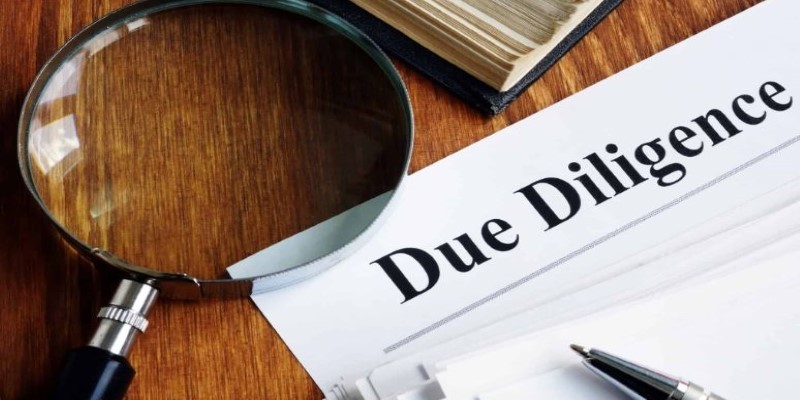A residuary estate is the part of a person’s belongings and assets that remains after all debts, taxes, and specific gifts from their will have been given out. It includes everything not specifically mentioned in their will. Understanding this concept matters because it helps ensure all remaining property is distributed fairly, avoiding confusion or disputes among loved ones after someone passes away.
What Is a Residuary Estate?

A residuary estate refers to the portion of your estate that remains after all specific gifts, debts, taxes, and expenses have been paid. Essentially, it’s the "rest, residue, and remainder" of your assets that isn’t specifically designated to anyone in your will. This remaining portion of your estate is distributed to your residuary beneficiaries, as named in your will.
For example:
- If you specify in your will that your daughter gets your house, your son gets your car, and your spouse gets certain valuable antiques, these are considered specific bequests.
- A residuary estate would consist of anything else left in your estate after those specific gifts are fulfilled, such as extra savings, investments, or personal possessions that weren’t explicitly mentioned in your will.
Without a detailed plan for your residuary estate, there’s a chance those leftover assets could wind up in legal limbo or divided under state intestacy laws (more on that later).
Why Does a Residuary Estate Matter?
1. It Ensures All Assets Are Accounted For
Even the most meticulously planned wills might fail to allocate every single item within an estate. Whether it’s a newly opened savings account, unexpected dividends, or furniture you forgot to mention, failing to account for these assets could leave them in legal uncertainty. A residuary estate acts as a safety net, ensuring everything has a clear direction in your estate plan.
2. Reduces Family Disputes
Ambiguity often leads to disagreements. If you leave assets unspoken for in your will, family members or heirs may contest ownership. This can lead to expensive, emotional, and time-consuming legal battles. By designating residuary beneficiaries, everyone knows how those leftover assets should be distributed, minimizing potential disputes.
3. Provides Peace of Mind
Knowing that you've accounted for every dollar, every possession, and every investment means peace of mind—not only for you but for your family. They won’t have to struggle with unresolved assets during what can already be a challenging time.
4. Adapts to Changes in Your Financial Situation
Life is unpredictable. Your financial situation might change after creating your will. Real estate values fluctuate; you might acquire new assets, or you might even sell possessions you originally earmarked for loved ones. By designating a residuary estate, you provide flexibility for how these changes are handled.
How Does a Residuary Estate Work in Practice?
Step 1: Fulfilling Specific Bequests
First, any debts, taxes, and expenses owed by the estate are paid off. Next, any specific bequests outlined in the will are distributed to the named recipients. For example:
- Your grandson receives your Rolex watch.
- Your brother inherits your vacation home.
Step 2: Assigning the Residuary Estate
Once all specific gifts are distributed and expenses settled, the remaining assets form your residuary estate. These assets are then distributed according to the terms you established in your will. For instance:
- You might leave 50% of your residuary estate to your spouse, 25% to your best friend, and the remaining 25% to a charity.
Step 3: Handling Unforeseen Assets
If new or unaccounted-for assets are discovered after your passing, they automatically fall into the residuary estate unless otherwise specified. For example, if you inherit a surprise sum of money or property while alive but didn’t update your will to address it, that asset will be covered under your residuary estate provisions.
What Happens If You Don’t Plan a Residuary Estate?
Failing to name residuary beneficiaries can lead to complications. If you don’t assign someone to inherit the residuary estate, leftover assets will likely fall under state intestacy laws.
- Your unassigned assets are distributed according to predetermined laws, often favoring immediate family members like spouses or children.
- If no suitable heirs are found under intestacy laws, your assets may become the property of the government (known as "escheat").
How to Plan Your Residuary Estate
Planning your residuary estate doesn’t have to be daunting. Follow these steps to ensure it reflects your wishes:
1. Define Residuary Beneficiaries
Clearly identify who should inherit your residuary estate. This could be a single person, multiple people (with specified percentages or shares), or even a charitable organization.
2. Consult an Estate Planning Attorney
Estate laws vary significantly by state. Consulting a qualified attorney ensures your plans are legally sound and minimize tax implications for your beneficiaries.
3. Regularly Review and Update Your Will
Life changes quickly. Make a habit of reviewing your will periodically, especially after significant events like marriages, divorces, births, or acquiring new assets.
4. Communicate Your Plans
While not always necessary, discussing your estate plan with your beneficiaries can help avoid misunderstandings and ensure they know your intentions.
Common Mistakes to Avoid

When handling your residuary estate, steer clear of these common pitfalls:
- Failing to Plan for Contingencies: What happens if a residuary beneficiary predeceases you? Always name alternate beneficiaries just in case.
- Leaving the Residuary Estate Blank: Not addressing your residuary estate leads to unresolved assets that could complicate probate.
- Ignoring Digital Assets: Don’t forget to include instructions for accessing and distributing digital assets, such as online accounts, photos, and more.
Conclusion
Estate planning is a crucial step in ensuring that your wishes are honored and your loved ones are taken care of after you’re gone. By avoiding common mistakes, such as neglecting contingencies, overlooking digital assets, or leaving key sections incomplete, you can create a comprehensive plan that minimizes complications. Take the time to review your estate plan regularly and consult with professionals to address any gaps or changes in your circumstances.












